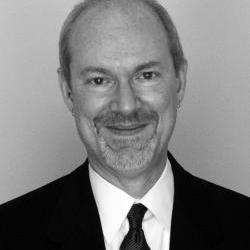The Blossom Music Center, the summer home of the Cleveland Orchestra, located about 40 minute drive south of Cleveland, is vast, with a covered, open-air pavilion seating 5,700, and a steeply sloped lawn area that can accommodate another 13,500 audience members. While there are often good crowds at concerts, it is very rare that a classical music concert sells out completely. Cellist Yo-Yo Ma did just that on Saturday night, with a full pavilion and blanket-to-blanket lawn as far as the eye could see. It is hard to imagine another currently active classical artist who could draw that kind of audience. The concert was very fine indeed, led by the orchestra's former resident conductor and Cleveland favorite, Jahja Ling, who is now music director of the San Diego Symphony.
The concert opened with a delightful reading of the overture to Bedřich Smetana's opera The Bartered Bride. After a short forte introduction, an intricate fugue at a quick tempo begins very softly in the strings, with a long crescendo to a full orchestra climax. The pulse remains, with different material and chattering wind passages. There are a few moments of repose before the return of the fugal material, developed to a joyous close. Here, as elsewhere in this concert, the orchestra was responsive to Ling's every gesture.
Yo-Yo Ma's entrance on the Blossom stage was met with ecstatic applause. He grinned and waved to the distant lawn audience. The applause had barely died out before he and Ling launched into the somber opening music of the Elgar concerto. Ma played with characteristic intensity and involvement in this famous concerto. Ling and Ma kept the intensity through the central moderato section with its "rocking", triple meter. An improvisatory-like passage for the cello, with orchestral interjections, brought the movement to a close as at its beginning. The performers moved seamlessly into the second movement, a short scherzo in which soloist and orchestra trade 16th-note phrases in dialogue. The beautiful third movement is filled with romantic, straightforward melody. The musicians had a flexible sense of phrase and pulse, as if time were no object. At the end, the music fades to nothingness. Immediately, Yo-Yo Ma moved into a recitative-like declamatory passage that introduces the fourth movement. The main body of the movement marches along with a wealth of Elgarian flourish. Particularly striking was a passage in unison in which Ma blended his sound into that of the ensemble of orchestral cellos. Indeed, throughout he was sensitive to the texture of his solo part with that of the orchestra. The concerto's opening musical returns briefly before the concerto ends on an energetic note.
This was a concert where the almost ubiquitous standing ovation seemed justified. The audience was rewarded with an encore, Tchaikovsky's Andante cantabile for solo cello and string orchestra, in a performance notable for its gentleness and very soft dynamic range. It was as if Ma, Ling and the orchestra were singing a lullaby, holding the audience rapt. At the end, in his ebullient manner, Yo-Yo Ma hugged the front row string players and "high-fived" Jahja Ling and again waved to the audience.
For the last work on the program the orchestra turned to the epitome of Bohemian melody, Antonín Dvořák’s Symphony no. 6 in D major, op.60. The performance was graceful and expressive from beginning to end, at times urgent, but never rushed. There were many beautiful turns of phrase, especially in the long melodies of the second movement. The third movement scherzo had the styling of Dvořák’s Slavonic Dances, especially in the rhythms and in the quietly lilting central section. The soft opening of the fourth movement belied its eventual goal, a joyful accellerando to a final presto, with a statement of the opening thematic material in the brass section.
The symphony brought to a close what was surely one of the highlights of this summer season. As the audience filed out of the pavilion, the Cleveland Orchestra cello section was seen celebrating Yo-Yo Ma at the back of the stage with a toast. The whole audience should have toasted the evening’s achievements.


